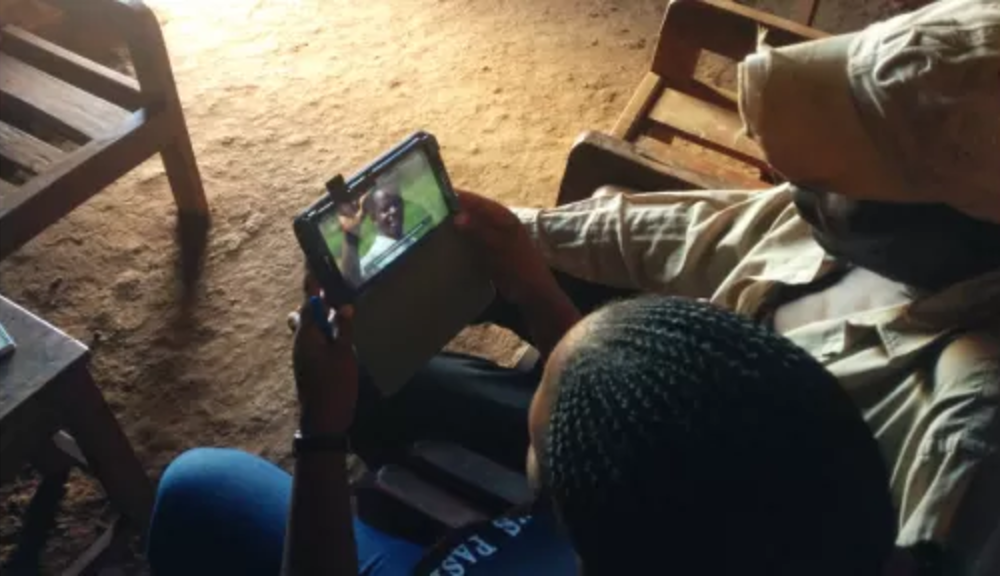Smallholder farmers in the southwestern tip of Uganda farm potatoes to feed their families and to earn some extra income. As part of Pasic, a large policy action project to increase sustainable intensification of cropping systems in Uganda, we found that seed quality is the main factor holding potato farmers back.
Farmers needed to learn two new activities:
- Positive seed selection: Using the largest tubers for seed stock instead of eating them and only using small, malformed tubers affected by disease as seed stock.
- Proper seed storage and handling: Dry tubers on racks or on dry grass and inspected regularly for rotten or disease affected tubers.
Using ICT to increase agricultural knowledge
To raise awareness on these two key potato seed quality aspects, we produced two short videos (below). In the first video, Mathias, a potato farmer from the region, points out how farmers can increase yields through positive seed selection. In a second video, Mathias points out the benefits of storing and handling potatoes according to recommended practices.
The videos were shown using Android tablet computers, as information and communications technology (ICT) has been suggested as an important complement to traditional agricultural extension services.
To test if farmers actually learned something from these extension videos, we showed them to randomly selected farmers in the region and subsequently tested their knowledge with a short quiz. The results are summarized in a study published recently in PLoS One.
We found that farmers who were shown the video on seed selection were more likely to say the largest and healthiest plants should be tagged and followed up to produce seeding material. They also had better knowledge about the ideal size of seed potatoes. Farmers that were shown the video on storage and handling had a better understanding of how seeds should be stored.
More interestingly, we found knowledge effects that appear to go beyond what was shown in the video. Farmers that were shown the video on, for instance, seed selection also seem to have gained knowledge about storage and handling. This suggests that farmers go beyond simply absorbing information and actively process what is shown in the video and apply this in different contexts. More research on how this finding can be used to make agricultural extension videos more effective is needed.
Obviously, showing a video and finding that knowledge has increased is only a first step. Farmers now also have to act upon this knowledge. To find this out, we will visit the farmers again after the next season. But for now at least, we can concluded that short videos can be a valuable tool to increase knowledge among smallholder farmers.
Bjorn Van Campenhout is a Research Fellow in IFPRI’s Development Strategy and Governance Division. This post originally appeared on the ICTworks blog.







